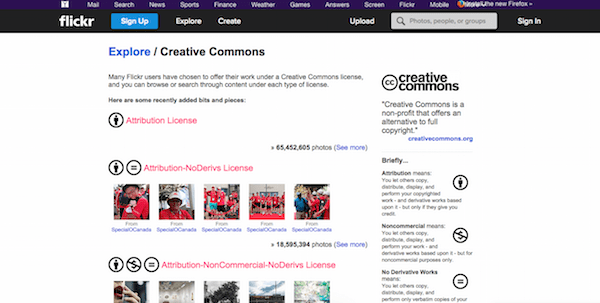
Looking for viral content for your next blog post?
Check out these blogging resources!

33 resources and tools for bloggers looking for their next viral post!
Sometimes, contagious content takes you by surprise.
Sometimes ‘ordinary posts’ do go viral.
But they are the exception.
Those bloggers who have regular viral posts have specific strategies and tools they use.
In this post we will share some of the best!
After all creating content that’s consistently engaging, popular and even viral, cannot be left to chance!
Dishing out epic content is an art, and like any other art, it can only be mastered through practice.
The more you practice, the more SUCCESS you will have!
To put them into context, let’s say you’re writing a blog post entitled ’20 Richest Teen Entrepreneurs Online’.
How could you make this blog post stand out?
Viral Content – Find Trending Keywords
Finding the right keywords to attract the most readers can be time-consuming. Simple research using the Soolve tool can be carried out across any number of platforms of your choice to display keyword suggestions based on your requirements.
Simply input your keyword phrase (i.e. ‘teen entrepreneurs’) and check what various search engines, social media platforms, online retailers and other platforms can come up with. You can save your searches and compare with previous results, or even check if your current keyword phrase has made it in the top Internet keyword list for that day.

Get Keyphrase suggestions with Soovle
For Viral Content – Consider Foreign Readers
Similar to Soolve, UberSuggest is an online tool that allows you to select the keyword language and then adds some characters to your keyword phrase to show you the effects of a slight variation in it.
This free tool displays suggestions based on real user queries from across the globe.
Check Social Search Engines
Spezify is a social search engine that brings up a mosaic of images related to your keyword.
The phrase ‘teen entrepreneur’, for instance, currently brings up an Instagram image of an Endevvr Summer Incubator event, where teen entrepreneurs meet to exchange ideas.
Get Involved With Online Discussions
LinkedIn (B2B networking site) users are well-informed and more knowledgeable when it comes to business than most members of the public. Opinions and information are shared freely in industry group discussions that can be accessed by anyone with a LinkedIn account.
After installing the Discussions extension in your browser, whenever you google a keyword and click the Discussions button, you’ll be able to browse everything that Google could come up with on your topic based on comments on review sites, question-and-answer sites, etc.
For a bit more oomph, search for posts on Quora, Yahoo! Answers, and just about any other question-and-answer website where there’s some mention of your topic.
For Viral Content – Add Fun Facts
Let’s stick with the teen entrepreneur example.
When you’ve come across the names of your teenage biz wizzes, but would like to spice up your content with some fresh bits of news or fun facts, you could use Topix.
Much of the information you’ll find online is geo-specific, it’s great to find a marketing research tool like Topix that allows you to set a specific location to get local results in a flash.
Check Tweet Counts
If you’re going to write about teen entrepreneurs, you might as well know what to expect in terms of Twitter competition. There are several ways to go about this. To begin with, you can use a tool like keyhole to check the tweet count for each one of your subjects, or for the topic, in general.
You can also check posts from Chinese, Japanese, Russian Twitter users, among others, and find influencers for your topic.
Install Browser Plugins
If you’ve heard of SEOQuake, you know that this browser plugin will not only allow you to set your own parameters to how your search results show up, but also to find specific types of content in certain parts of the news pieces, such as the word ‘infographics’ in the body or title of the article.
Use Velocity Graphs
Mashable and similar websites have had great success posting simple visual guides to show the rate at which a certain content is picking up momentum for example.
You can easily create graphs with something like CreateAGraph or FastGraph.

Scan Blog Directories
Look into Reddit, Digg, StumbleUpon, and Yahoo Buzz.
You may even want to give ListVerse a try.
You can pick up important bits of information from the blogs themselves, as well as from their comments. They can serve as indicators of the best time to publish your next post.
Increase YouTube Views
If you’re adding video content to your blog post, it pays to research other videos on the same topic. These videos will have the same reach you’re looking for.
With the YouTube advanced search operator ‘intitle:’ and the filter and sort tools, you can easily figure out what the masses are more interested in at the moment, as well as pick up some helpful background information on your teens.
Visuals
If images speak louder than words, then you don’t want them to scream out ‘copyright infringement’.
To that end, give Flickr, FreeImages, FreeRangeStock, Pixel Perfect Digital, Unprofound, MorgueFile and StockVault a try, and see which is more to your liking. Try to always optimize your images with alt text.
There are various other websites you can use to create your own visuals in exchange for money or completely free. Canva offers myriads of images, templates, icons etc., some of which are complimentary. PicMonkey is similar, but it also allows you to edit your images.

Get Reliable Opinions
Whenever entrepreneurs are in the spotlight, you can’t go wrong with The Economist, Forbes, Fortune, Wired, and similar magazines that enjoy impressive global circulation figures and rely on a steady stream of online subscribers. Some journals may require a subscription before they grant you access, but it’s a small price to pay in return for access to some of the brightest minds in the industry.
Use Accurate Figures
When you’ve pinpointed your main sources, remember to check your facts. Using figures from Business Insider articles is fine and dandy, but double-check everything before you put pen to paper.
Even figures in a Forbes article are subject to change, and it always pays to check the date of the article for comparison with other articles on a given topic.
There are net-worth registers that provide reliable information for a fee, such as Rich Register. And Forbes is regularly updated.

Find Influencers
There are various ways to find key influencers for your specific topic, and to monitor their posts for similar content. One is Realtime, another is Topsy, and yet another is the Content Strategy Helper Tool. GroupHigh will help you whizz through millions of blogs for a specific topic, and Bitly will allow you to pinpoint the people sharing the most popular posts. When you find your influencers, get in touch, establish some level of trust, and then ask them to share your content.
Quiz Your Users
Quizzes are a fun way to engage your readers without dishing out expensive interactive features.
There are various tools to help create and embed them into your blog post, like PollDaddy, QuizzRevolution, Gnowledge, Quizworks, etc. Some are free and some come at a cost.
Use Thumbnail Previews
It goes without saying that if you have a captivating image to add to your blog post, you may as well create a thumbnail version of it to share on social media platforms. The thumbnail is, after all, the visual element that’s likely to hook in most readers.
WordPress and other content management sites allow you to automatically set a thumbnail for your post.
Time it Right
The Zimmerman Agency recommends publicizing the blog post at 9 a.m. and lunch time, which is when people turn up for work but have a few minutes to spare.
Buzzsumo claims the best day to publish an article is Tuesday, while Hubspot social media scientist Dan Zarrella claims people tend to share and retweet more on Friday, according to a recent blog post.
Contently, on the other hand, recommends publishing content often, rather than saving it for a certain day of the week.
Avoid Exaggerations, Fluff & Filler Content
There’s a limit to how much a writer can embellish a post without going over the top.
Anyone with aspirations to create viral content should know that limit. A good writer will never cheapen their work by writing content without substance. Therefore, don’t expect reliable sources to share content with ‘filler’ text, as they like to call it in the industry.
Keep your sentences and paragraphs short and concise.

Don’t Plagiarize
Never quote or cite without revealing your source.
Be it text, image, shared opinion or number, its author must be given credit for the work put into making it public. It goes without saying that the citation can’t be taken out of context and used to further your goals, however positive they may be. They must be true to the author’s perspective and intentions.
Systemize Your Content
The best way to save time on your posts is to automatize your writing to the very last detail. Google ‘letter count’ and find a website that will count your characters for you.
This comes in very handy with meta-descriptions. Then look for websites that will handle title capitalization for you, whichever style you may be using, i.e. Chicago Manual, AP Style, Oxford, etc.
Create something you’re confident in and proud of.
Potentially viral content can be created any time. If you get the marketing right, you can leverage the internet to achieve a viral effect regularly.
Remember, people engage with and are more likely to share content when they discover it through friends and people they trust.
If you liked this, check out how I get 100,000 visitors a month with top list articles.
To our success,
David Aston











